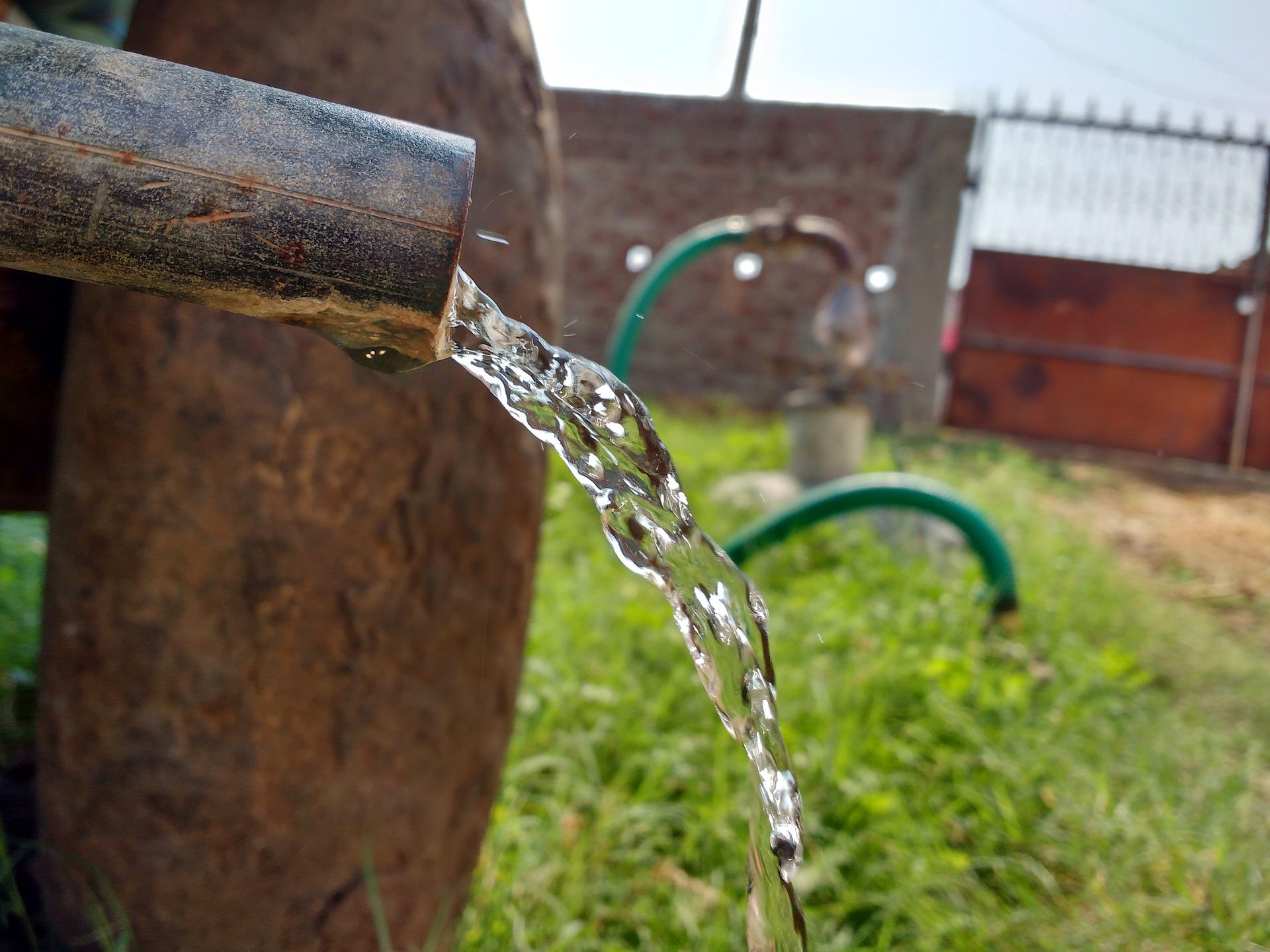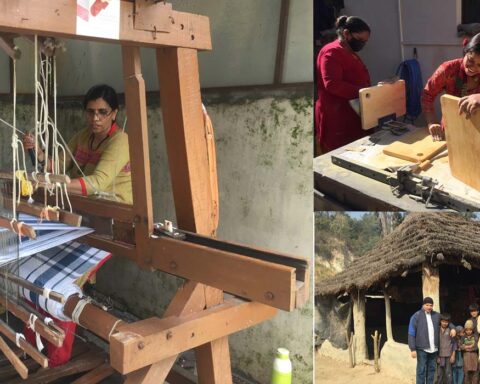A new United Nations report, launched last week, has “looked underfoot to solve global water crises”. The focus of the latest edition of the UN World Water Development Report (WWDR) is not only to highlight the increasing importance of groundwater, a resource that accounts for 99 per cent of all running freshwater on Earth and yet remains undervalued, mismanaged and overexploited, but also to suggest solutions.
From collecting data to boosting environmental regulations and reinforcing human, material and financial resources, the UN-Water’s flagship WWDR, published by UNESCO, offers concrete recommendations to unlock the enormous potential of groundwater that has allowed human societies to flourish since millennia.
Making the Invisible Visible
The report noted that nearly 50 per cent of the world’s urban population depends on underground water sources. In addition to providing water to drink and for other domestic uses, around 25 per cent of groundwater is essential for irrigating crops. These uses are projected to grow by roughly one per cent annually over the next 30 years, as dependency on groundwater is expected to rise along with the impact of global warming, says the report.
The situation is already critical in India, affecting most of its regions.
Despite our dependencies, “more and more aquifers are being polluted, overexploited, and dried up by humans, sometimes with irreversible consequences,” says UNESCO chief Audrey Azoulay.
The experts studying groundwater also suggest that, despite being located underground, groundwater is not excluded from being affected by climate change.
The subject of groundwater conservation is, thus, important to discuss and act, especially in the context of developing countries and for decision makers, as they must begin to act on ways in which groundwater can help ensure the resilience of human life and activities in a future where the climate is becoming increasingly unpredictable.
“Improving the way we use and manage groundwater is an urgent priority if we are to achieve the Sustainable Development Goals (SDGs) by 2030,” said Gilbert Houngbo, UN-Water Chair and President of the International Fund for Agricultural Development (IFAD), in the UNESCO report’s foreword.
Groundwater Data Collection
The lack of detailed information and knowledge about local groundwater resources is a major challenge in many countries. The UN Summary Progress Update 2021 on SDG 6 raises the issue of the lack of groundwater data and the lack of groundwater monitoring initiatives, emphasising groundwater monitoring to be a ‘neglected areaʼ. Outside of Europe, North America and large Asian countries like India and China, regular monitoring of groundwater levels or quality, the first step towards groundwater management, is restricted to only a few countries.
An interesting area that has seen growth in the past few months is data collection. In India as well, using satellite data, researchers have found that around 100 sq. km in and around Delhi has high risk of land subsidence, primarily due to groundwater extraction.
The UN experts, in WWDR, now want the private sector to be made part of this data collection.
The process of acquiring data and information – largely the responsibility of national and local groundwater agencies – could be complemented by the private sector, the authors argue. “As a matter of corporate social responsibility, private companies are highly encouraged to share these data and information with public sector professionals,” says the report.
The section of private sector that can help is the oil and mining industries, which possess a great deal of data, information and knowledge on the composition of the deeper domains underground, including aquifers. The experts suggest working with these industries and public sector professionals in charge of groundwater assessment and management. Through these professionals, spatially differentiated information on changes over time of water levels, groundwater abstractions and groundwater quality must be sourced to make proper decisions on groundwater development and management.
Groundwater Quality and Regulations
Being invisible, the over-extraction and pollution of groundwater are never noticed, making the loss irreversible. The existence of ill-constructed or poorly maintained on-site sanitation facilities leads to persistent pathogen contamination of water abstracted from nearby shallow wells, particularly in villages. Agriculture is another cause of groundwater pollution. Industry, including its subsurface components such as hydrocarbon development and various forms of mining, produce a large diversity of pollutants, forming severe threats to groundwater quality.
While prohibiting or limiting certain polluting and water-using activities, like the use of pesticides, herbicides and fertilisers, restricting certain cropping patterns, reducing animal grazing intensity, reclaiming agricultural land, and managing drainage may help tremendously, it is important to consider illegal emission and discharge of substances into water bodies or into the ground, or unlawful treatment of wastewater, an offence or crime.
Participatory Groundwater Planning
Open and participatory groundwater planning processes can generate greater public support and acceptance of the resulting plan and, by extension, of operational management. The planning must involve scientists, resource management specialists, stakeholders and decision-makers, and should be accessible to non-specialists, inviting users to participate, advise the UN experts.
Planning of groundwater resources is equally important for both government bodies and end users, collectively or individually. At the local scale, data gathering and information analysis may be limited, yet, all levels can benefit from capacity development and better awareness, says the WWDR. The report also underlines the importance of sex-disaggregated data, and ensuring women’s participation in data generation and decision making – otherwise a male-dominated domain – to be vital to acquire a gendered dimension.
“To protect aquifers, we also need innovation, in terms of technical interventions, institutional and legal reforms, improved financing, and behavioural changes,” argued the UNESCO chief.
Financing Groundwater Management
Calling for substantial structural financing for groundwater governance and management, experts accept that the mechanisms for allocation of government funds or for raising funds from private sources are in many cases rather poorly developed.
In many countries, there is no price or tariff for groundwater, especially for irrigation purposes, in part due to the difficulties in monitoring and enforcement, and the political importance of the agricultural sector.
“If groundwater is included as part of distributed water supply infrastructure, the water tariff, if properly set, can provide financing for groundwater management. However, even cost recovery is challenging in most countries and costs for water resources management are rarely reflected in the water bill,” note the report authors.
The experts suggest a mix of abstraction levies, fees or tariffs, effluent or pollution charges, taxes, government budgets, and Official Development Assistance (ODA) to finance the water resources management. Besides are opportunities to better integrate sustainable groundwater development and management as part of water sector projects and initiatives.
Projects like Managed Aquifer Recharge can also be included as part of urban water supply to add security and flexibility in case of seasonal resource variation. It is also useful if the costs and benefits of groundwater management action (and inaction) is analysed and understood in economic terms, including opportunity costs, externalities and social and environmental benefits.
Groundwater was the focus of this year’s World Water Day, observed on March 22 every year. Launched on the occasion, UN-Water’s flagship WWDR is published by UNESCO every year on a different theme. UNESCO, in cooperation with UN-Water, is also organising a global groundwater summit in December.

























